One job should be enough
"Sometimes I cannot control my life"
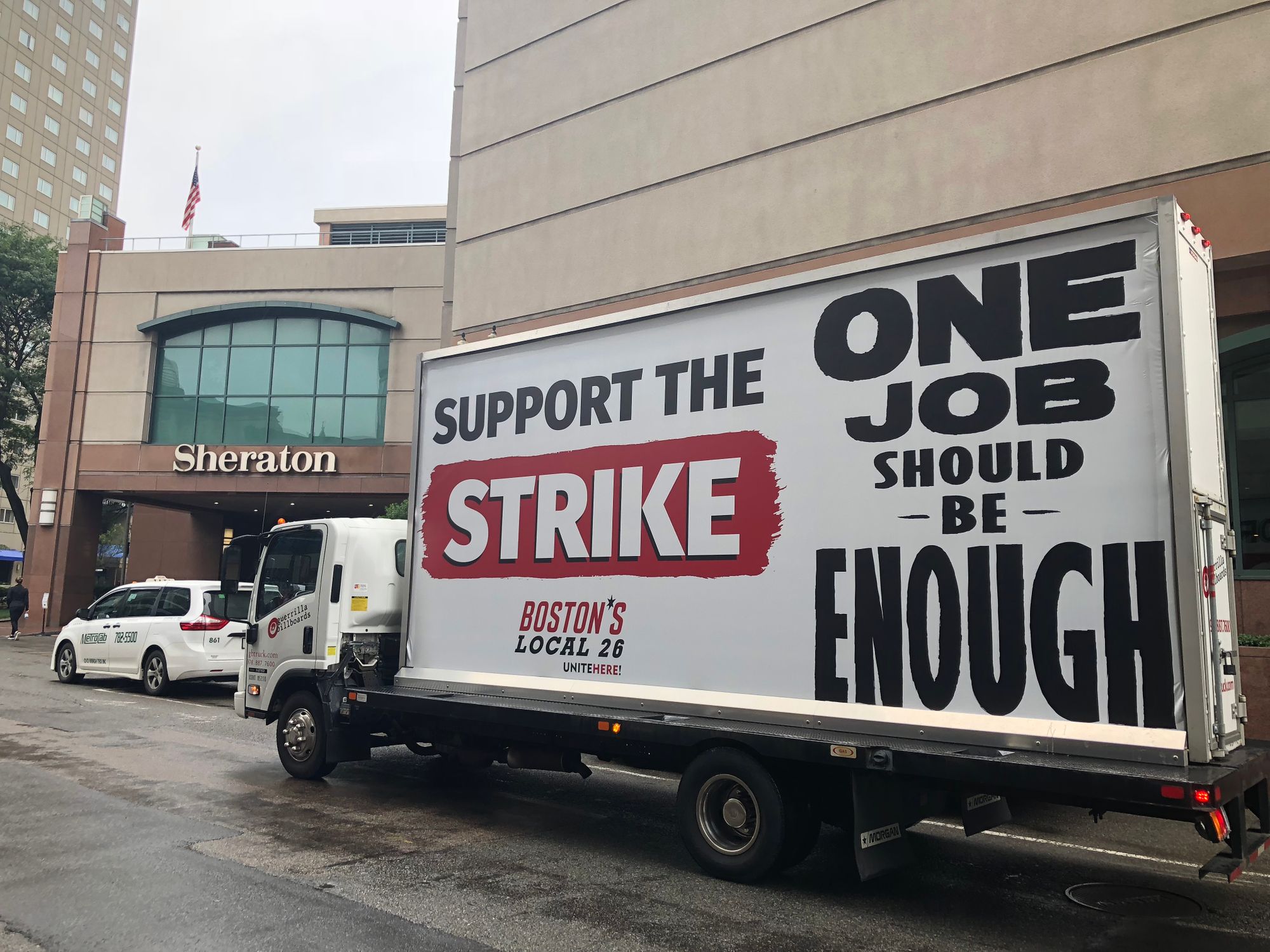
Thank you for reading Hell World. Please be sure to subscribe in the box above if you haven’t already. Also check out the last few editions if you missed them: Payday Loans Are Coming For Everyone and We Always Thought My Sexual Assault Was the Funniest Thing. As a reminder I will eventually start charging for the newsletter. If you’d like to support my work and subscribe ahead of time you can get in touch.
Qing Wei sleeps with her phone nearby in case the call ever comes. Not the bad one, not the call you might typically think of when you hear about someone sleeping with their phone nearby just in case, but a good call. She’s hoping she’ll get a shift at work. The way things work now is that she often might not know about a shift until an hour or two beforehand, and she can’t afford to miss the opportunity to go clean up your shit at the hotel. It’s too expensive to live in the Boston area already she says and she has a kid in college she says. One missed call could mean she can’t pay her bills that month she says.
Wei is 50 years old and has worked at the Sheraton Boston for thirteen years as a housekeeper. She gets paid $30 an hour on a typical day, cleaning about fifteen rooms a shift (the average is around $21 an hour). In the summer during the busy season when the tourists tromp through the city in search of history and fried fish, she’ll mostly reach forty hours, but in the dead of winter when the streets and the hotels are empty, that number declines significantly. If there’s no mess to clean up then she’s not getting paid.
“The company never gives me a schedule,” she says. “I have a different schedule, always. Sometimes they don’t put me on the schedule. Sometimes I cannot control my life.”
Losing hours means more than losing pay. If she doesn’t reach the 80 hours a month threshold she’ll also be ineligible for her insurance plan.
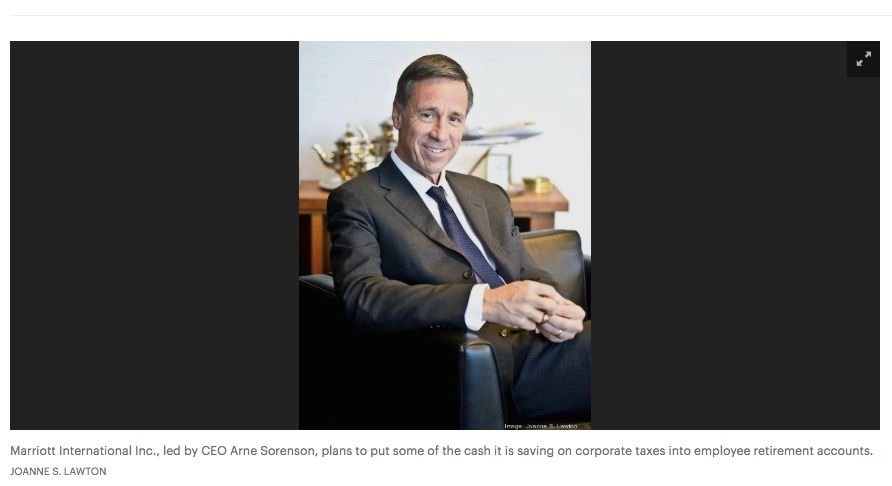
Last year Fortune Magazine placed Marriott International, which owns the Sheraton Boston, at #33 on their "100 Best Companies to Work For" list.
“Employees feel that ‘at Marriott, we are family’—even when there are 136,000-plus of them,” they wrote. “They say they feel ‘treated as individuals and not one large machine’ and embrace the company’s commitment to diversity.”
Marriott, the largest hotel chain in the world, which runs over 6,500 properties in 127 countries, had $22.9 billion in revenue in 2017. Following the Trump tax cuts earlier this year, Marriott was among a number of high profile companies that pledged they would be giving back to their employees. The $140 million they pledged would amount to a one time $5-to-$1 match of up to $1,000 into their retirement funds.
Arne M. Sorenson, chief executive of Marriott International, talked about the tax cuts on a call with his board this year.
“If you wave a wand and say tax reform is done, and our … taxes decline by a certain amount, I don’t think that, by itself, is going to change our capital availability,” he said.
The savings, he admitted, would “likely to go back to shareholders.”
Through August the company had repurchased 14.1 million of their own shares for $1.9 billion. Weird.
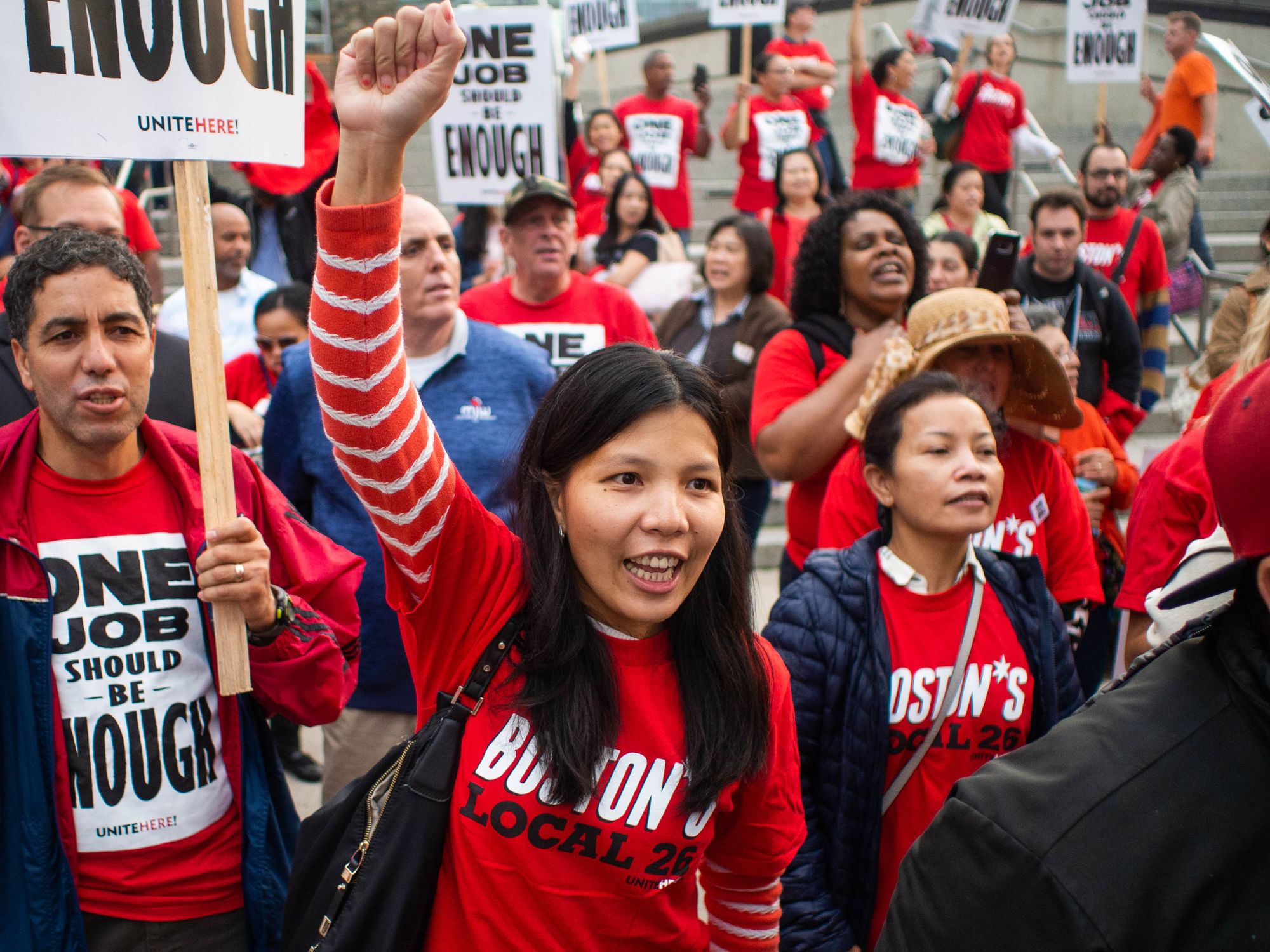
Wei’s mother is 71 years old and she also works for Marriott as a housecleaner. Wei says her mother can’t retire yet because she can’t afford the insurance she would have to pay for if she did so she cleans the rooms with her 71 year old hands and back. She pushes the cart into your room and knocks on the door and hopes you’ll want her to clean up your shit. The rooms go for $5-600 a night but if they clean one they get an extra $10 in the pocket Wei says.
“It’s hard for her. A lot of my coworkers are 67, 68 and pushing their bodies to work 15 hour days.”
The alternative is worse because if they aren’t given the opportunity to push their bodies they might not be able to afford to live. John Willard Bill Marriott is 86 and the top executive of Marriott. He’s worth $2.8 billion and I wonder if he pushes his body very often these days.
Wei says she and her fellow members of UNITE HERE Local 26 hotel workers are ready to go on strike if something doesn’t change. Earlier this month the union authorized the bargaining committee to call for a strike at eight Boston Marriott hotels, which follows similar actions in cities around the country from Boston, San Francisco, Detroit, Seattle, San Jose, San Diego, Oakland, Honolulu, and Maui.
“Workers are demanding the chance to live in Boston, support a family, and retire with dignity by working one job,” the union wrote in a statement. “In addition, workers are demanding greater job and safety protections, including advanced notice on technological advances, and progressive changes to the company’s confusing “Your choice” / “Make a Green Choice” program that offers guests points while keeping housekeepers out of work or in pain.”
“If there is a hotel strike in Boston, it will be Marriott’s failing,” UNITE HERE Local 26 President Brian Lang says. “Marriott is the richest hotel company on the face of the earth. It’s about time corporate executives respect the work we put in every day that makes Marriott billions. Our demand is simple: one job should be enough.”
“If they don’t figure out this key issue then we’re going to go on strike,” Wei says. She’s talking about the Green Choice program, the type of ostensibly environment-friendly program many hotels like Marriott have put in place over the past decade or so. The idea is that by giving guests the option to refuse room cleaning services, they are reducing waste and energy resources. Many hotels will even bribe guests into refusing service, offering up a Starbucks gift card or hotel points and the like. It’s all wrapped up in a feel good bow of conscientiousness and do-gooding and it’s ruining people like Wei’s lives. She doesn’t know if most people are aware of that and now that you’re reading this I suppose you are.
“I think they think about us,” she says of guests, as if we think we’re taking a load off their backs by refusing to have our rooms cleaned. “But a lot of the guests they don’t know the Green Choice, I think the guests are confused. They don’t have it explained to them, the rest of the guests think it’s good for us, because the job is easier or something.”
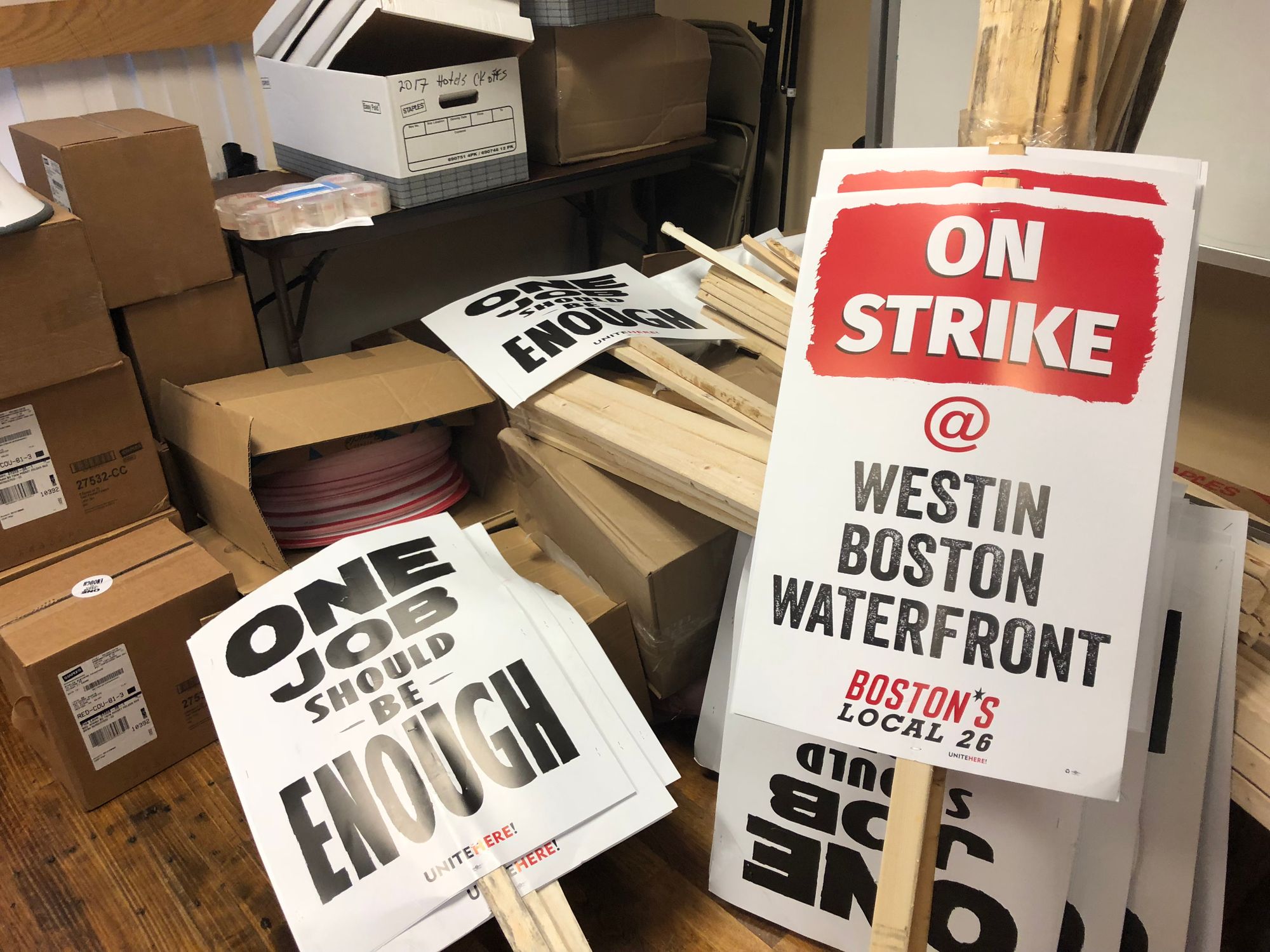
Here’s a question you can ask yourself and think about on your own time because I’m not a scientist and I don’t know whether or not programs like Green Choice that are meant to benefit the environment will actually do anything in the long run — companies like Marriott certainly suggest they are effective and maybe they are and that is very nice and good. But when a massive company sees an opportunity to reduce the hours and benefits they have to pay out to their thousands of employees they are going to take it. If they can sell that back to their customers as charity with a positive pr spin they will do that also because the nature of a massive company is to steal as much money from everyone they can — their customers, their employees — and filter that back up to the top of their corporate board and investors all while convincing us they’re the good guys.
“It’s taken a good, full-time, predictable job and turned into an on-call job, and it creates havoc in people’s lives as a result,” Lang says of the Green Choice movement. “It’s a brilliant marketing program, but it’s done at the expense of, largely, immigrant women.”
All of the signage used for employees at the Marriott hotels in Boston are printed in four languages, Spanish, Chinese, English, and Haitian Creole.
What’s funny is that workers have been saying this for years. Here’s a story from 2010 “Going ‘green’ can be cutting jobs.” Here’s one from 2014 on the same idea. I guess that’s not funny now come to think of it.
Juan Medina thinks environmental initiatives are great. A houseman for eleven years at the Westin Boston Waterfront, he certainly understands that doing things to reduce water waste and the use of chemicals in hotels and such are things companies should be trying to do.
“They have it set up in the rooms where they’re saving water from the toilet, the sink and all that. They can have recycling in the room and regular trash, there are other steps without this program,” he says.
The motherfucker of it all is that while Green Choice reduces the number of hours he and coworkers like Wei get, it also makes the hours they do have even harder. It usually takes about fifteen minutes to clean an occupied room, he says, thirty minutes to clean a check out room. Guests who opt to let their mess build up for a couple days at a time naturally increase the amount of time it takes to clean. It could be 45 minutes to an hour or more now. And, they say, the amount of chemicals they have to use to clean a multiple-stay day room is actually more than they would have if they did it every day. People make a hell of a mess in their hotel rooms. They don’t exactly come out say we’re all disgusting pigs but I would not entirely blame them if they said that because it would be true.
In any case, hotel companies could do all their nice and good environmental stuff while still giving people like Medina an actual full time job. The two things are not mutually exclusive. It might cost shareholders and executives a little bit of money but we do not care about them because they are vampire pigs who can spare the fucking change and do you ever wonder sometimes how hard it would be to build a guillotine anyway.
“When the guests choose to have the Green Choice program they don’t get service for three days, so when they leave the room is a mess. It’s harder for the room attendant to clean the rooms, and it’s harder for us as the housemen when we have to help them. They’re thinking it’s helping us but what it’s doing is hurting us,” Medina says.
“A lot of people aren’t getting hours. It’s harder for people to pay our bills, to have health insurance. We expect to get 40 hours, due to the Green Choice it’s affecting us really bad. Marriott is one of the world’s richest hotels.”
Most of the people he works with can’t afford to live in Boston. He lives in Weymouth, not too far away, but others come from as far as New Hampshire, Providence, or Fall River, commuting hours to clean up your jizz towels.
“We’re hoping with the negotiation we’ll come to some kind of agreement with the union and the company,” Medina says. “But we need to get our voices heard because it’s really affecting everybody. Nobody is getting hours and the people getting hours they’re giving them too much work. We work when it’s busy and the slow season after Thanksgiving they don’t give people with lower seniority the hours. What happens is you don’t have insurance. I’m a diabetic, I can’t afford to lose my insurance. I need my medications. I’m fighting for insurance year round. This is a rich company, when it’s slow we should still be able to have our insurance, retirement.”
Last April Medina was blocked out of his insurance benefits because he didn’t have enough hours in the preceding three months to qualify.
“I work with women with kids, their families are in their insurance. I know ladies here that have husbands that are sick and they worry about their insurance, they can’t get medications they can’t get seen.”
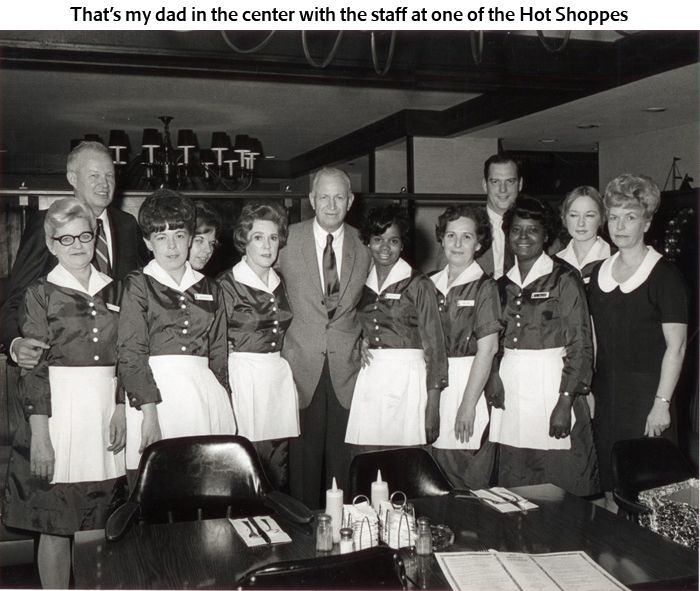
Back in 2008 Bill Marriott, son of Marriott founder John Willard Marriott gave a speech inducting his father into the Labor Hall of Fame at the U.S. Department of Labor in Washington, D.C.
“Dad was a hard worker and our employees emulated that same work ethic,” he said. “He also believed the key to a successful business was to, first and foremost, take care of your employees because he always said, ‘If you take care of them, they'll take care of your customers and the customers will keep coming back again and again.’”
